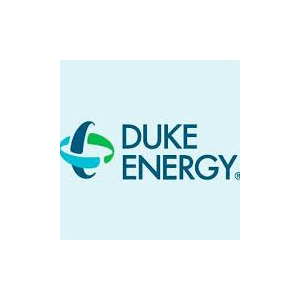Job Description
Job Duties and Responsibilities:
Applies technical expertise in the identification, analysis and resolution of problems in area of expertise.
Ensures accomplishment of business goals and objectives through effective planning, organizing, estimating, scheduling and monitoring of work activities.
Prepares thorough and accurate technical reports, correspondence, documentation, calculations and sketches with some guidance.
Conducts engineering and related studies.
Strives to continually improve job-related, technical and professional knowledge, skills and performance.
Develops positive working relationships to effectively coordinate work activities. Demonstrates effective oral and written communication skills. Maintains accurate records and files.
Supports the company's goals and represents the company positively and professionally.
Note: This posting is for one open position. Dependent on relative experience, the level to which a candidate is aligned is outlined below.
Basic/Required Qualifications for an Engineering Technologist II:
Bachelor of Science in Engineering Technology (or equivalent), or 2+ years of experience and Associate Degree in Engineering Technology (or equivalent), or 6+ years equivalent experience with a High School Diploma/GED.
Valid Driver's License
Basic/Required Qualifications for an Engineering Technologist III:
3+ years of relevant industry experience coupled with a Bachelor of Science in Engineering Technology (or equivalent), or 5+ years of experience and Associate Degree in Engineering Technology (or equivalent), or 9+ years equivalent experience with a High School Diploma/GED.
Valid Driver's License
Additional Preferred Qualifications
Good written and oral communication skills.
Experience in the utility industry.
Understanding of basic principles of project management.
Working Conditions
Hybrid Mobility Classification – Work will be performed from both remote and onsite locations after the onboarding period. However, hybrid employees should live within a reasonable daily commute to the posted Duke Energy facility.
Duke Energy
Charlotte, NC
Duke Energy Corporation, together with its subsidiaries, operates as an energy company in the United States. It operates through three segments: Electric Utilities and Infrastructure, Gas Utilities and Infrastructure, and Commercial Renewables. The Electric Utilities and Infrastructure segment generates, transmits, distributes, and sells electricity in the Carolinas, Florida, and the Midwest; and uses coal, hydroelectric, natural gas, oil, renewable sources, and nuclear fuel to generate electricity. It also engages in the wholesale of electricity to municipalities, electric cooperative utilities, and other load-serving entities. This segment serves approximately 7.7 million retail electric customers in 6 states in the Southeast and Midwest regions of the United States covering a service territory of approximately 95,000 square miles; and owns approximately 50,880 megawatts (MW) of generation capacity.
The Gas Utilities and Infrastructure segment distributes natural gas to residential, commercial, industrial, and power generation natural gas customers; and owns, operates, and invests in various pipeline transmission and natural gas storage facilities. It has approximately 1.6 million customers, including 1.1 million customers located in North Carolina, South Carolina, and Tennessee, as well as 531,000 customers located in southwestern Ohio and northern Kentucky.
The Commercial Renewables segment acquires, owns, builds, develops, and operates wind and solar renewable generation projects, including nonregulated renewable energy and energy storage services to utilities, electric cooperatives, municipalities, and commercial and industrial customers. This segment has 21 wind and 100 solar facilities and 1 battery storage facility with a capacity of 2,991 MW across 19 states. The company was formerly known as Duke Energy Holding Corp. and changed its name to Duke Energy Corporation in April 2005. Duke Energy Corporation is headquartered in Charlotte, North Carolina.
-
IndustryEnergy/Utilities
-
No. of Employees30, 083
-
Website
-
Jobs Posted229


